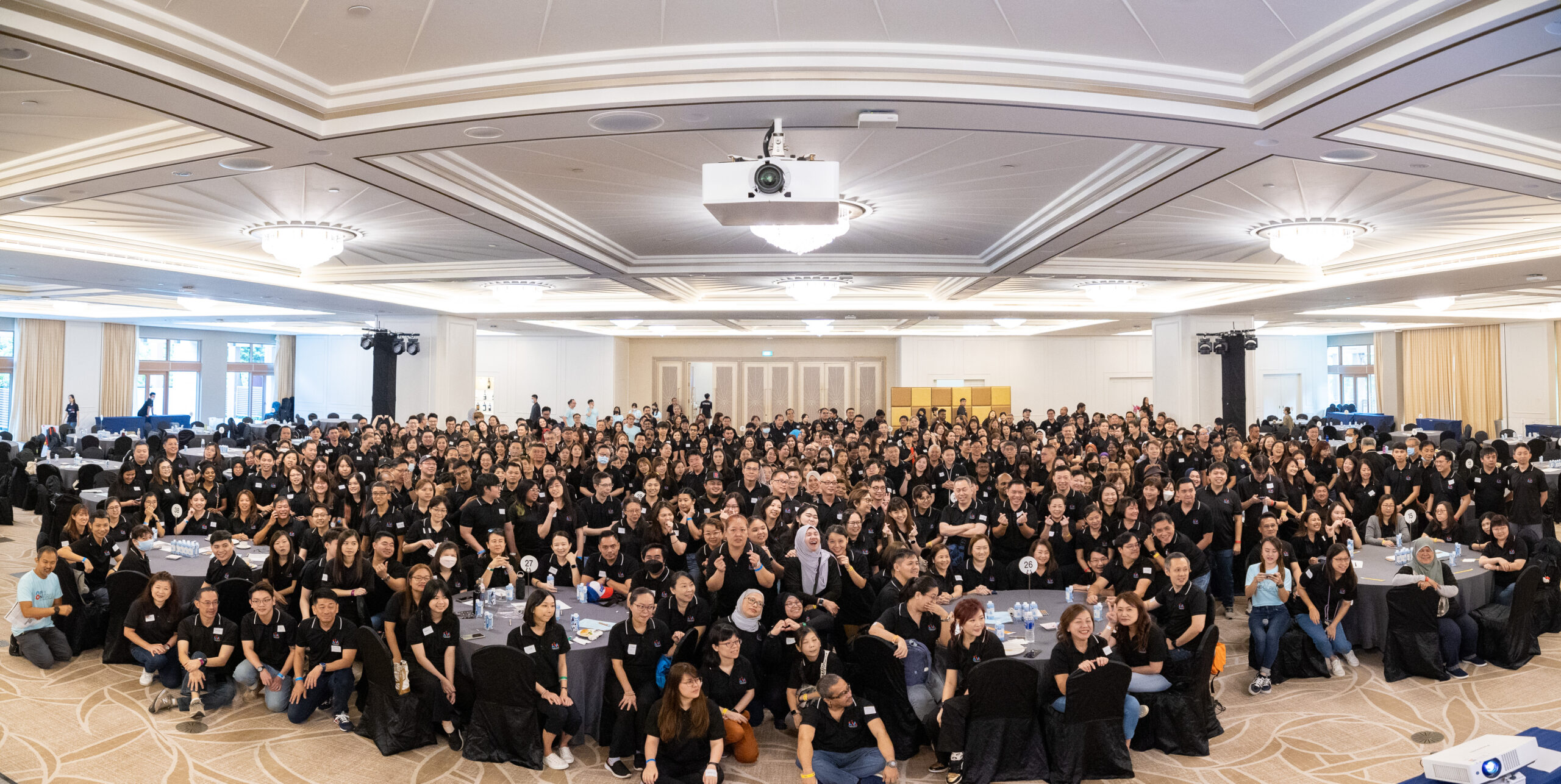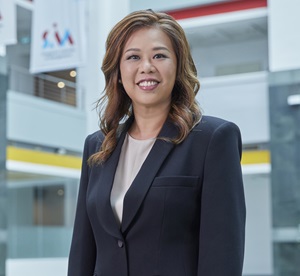SIM’s blueprint for loyalty: How meaningful work drives long-term stay
- Josephine Tan

Strengthening team spirit through shared experiences and meaningful connections across the SIM community.
In an era where job-hopping has become the norm and employee loyalty seems increasingly elusive, the Singapore Institute of Management (SIM) is quietly defying the trend. With 35% of its employees having stayed for more than a decade—and nearly 10% being SIM alumni—this private education institute is showing that with the right culture, development opportunities, and shared purpose, retention can be more than an HR metric but a way of life.

“People want to do meaningful and purposeful work, which is recognised and rewarded,” Sara Yik, Chief Human Capital Officer at SIM, told HRM Asia. “People join—and stay with—SIM because they resonate with our purpose.”
That purpose is deeply embedded in the institution’s DNA. With a S$60 million SIM Impact Fund supporting bursaries, scholarships, and other initiatives that make education more accessible, employees see their work translate directly into lives changed. “Our goal is for our learners to ‘learn for life, thrive for life,’” Yik continued. “They see our students graduate and go on to have successful jobs and careers and take pride in truly making a difference to thousands of people over the 60 years of SIM’s history.”
While Yik is quick to say that loyalty cannot be designed in a prescriptive way, she believes it can be cultivated. “We focus on building a culture where employees feel seen, supported, empowered, and valued,” she explained. This includes everything from psychological safety and social capital to clear role expectations and performance-linked rewards.
Each role at SIM is defined by a clear “value add”—a shift from activity-based KPIs to outcome-driven contributions. And when it comes to recognition, SIM recognises achievements well before annual reviews. Contributions are acknowledged regularly across platforms such as town halls and Core Value Awards, reinforcing the link between behaviour, values, and impact.
New hires, meanwhile, embark on a structured journey beginning with an interactive orientation programme and are invited to tea sessions with the President and CEO within their first six months. “It allows newcomers to get to know the leadership in a more natural setting,” said Yik.
Building a culture in a hybrid world
In today’s hybrid and dispersed workplaces, culture can often feel diluted. Not so at SIM. “We believe that a strong and cohesive culture is built through consistent and intentional practices,” Yik shared.
One such anchor is their refreshed Core Values—Act with Integrity, Respect for the Individual, Be Learner-Centred, Collaborate, and Continuously Learn and Innovate—that were developed with extensive employee input and are integrated into daily operations and performance appraisals. “All new hires attend a Core Values workshop to understand our Core Values and are encouraged to live them in daily work behaviours and practices,” she explained.
SIM also takes employee feedback seriously. Annual engagement surveys are followed by visible action. In 2024, this led to 20 team-level action plans and 30 cross-functional initiatives, ranging from technology upgrades and the removal of Saturday shifts to the sponsorship of postgraduate degrees.
Yik added, “Taking visible action on feedback builds trust, which is the foundation of a strong culture.”
To promote belonging, SIM organises both formal and informal bonding activities—from recreational events and festive celebrations to division-wide team building. This year, the entire workforce of over 500 employees headed to Johor Bahru, Malaysia, for an organisation-wide retreat. “These events are intentionally designed to promote interaction across generations, genders, ethnicities, and departments; to foster greater understanding, inclusivity; and to strengthen employees’ sense of belonging,” she explained.
For organisations struggling with hybrid workforces, Yik’s advice is clear: “Communicate the ‘why’ of management decisions, engage employees by seeking their input, create opportunities for meaningful bonding, and equip managers to lead and develop their teams.” These practices ensure culture remains vibrant, even when teams are dispersed.
Learning as a strategy, not a perk
As a lifelong learning institution, SIM treats employee development as a strategic priority, not just a benefit. Through its Learning@SIM programme, the organisation invests nearly S$1 million annually in role-based skills development, offering e-learning, seminars, workshops, and in-person training. “We are a skills-based organisation, where each role has identified core and functional skills,” Yik explained. HR collaborates with business leaders to map current and future skills, ensuring learning aligns with strategic goals.
READ MORE: Why caring leadership is your next strategic imperative
Career pathways empower employees to take ownership of their development. Professional Development Plans, discussed with managers, help employees identify and close skill gaps. Access to LinkedIn Learning and curated programmes on topics like generative AI (GenAI), cybersecurity, and data protection encourages self-directed learning. SIM also offers a 10% tuition grant for its E-Learning Graduate Certificates in high-demand fields like analytics and HR management, reinforcing its commitment to growth. “Learning@SIM helps maximise and develop our human capital,” Yik added, emphasising that learning is a driver of organisational success.
Looking ahead, Yik sees several forces that will reshape HR over the next five years: AI, people analytics, and the rise of the skills-based workforce.
“AI will automate administrative HR tasks and free up time for strategic work,” she explained. “Meanwhile, people analytics will allow HR to use workforce data to provide real-time and predictive insights, helping leaders make better decisions.”
The biggest shift, however, may be the move from role-based to skills-based talent models. “Hiring, promotion, and workforce development will increasingly focus on skills,” said Yik. “HR must map current versus future skills, identify gaps, and design reskilling pathways to keep organisations agile.”






